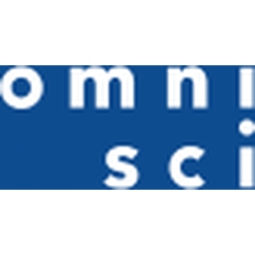Download PDF
Leveraging IoT for Enhanced Network Analytics: A Case Study on TELUS and HEAVY.AI
Technology Category
- Networks & Connectivity - WiFi
Applicable Industries
- Cement
- Telecommunications
The Challenge
TELUS, a leading telecommunications company, was faced with the challenge of interactively exploring complex network datasets without experiencing lag. The company needed a comprehensive mapping of TELUS communities and competitor speed information to better understand the market dynamics. Identifying competitor coverage and deciding where to build wireless services was another significant challenge. Each of TELUS’s high-speed services has its own coverage layers, qualification criteria, and competitive restrictions. TELUS Marketing needed to know where they could deploy each service, the targeting potential, and where competitors offer similar services. They required an advanced analytics solution that quickly shows their customer base, potential upsell opportunities, and where wireline and wireless high-speed internet adoption are low.
The Customer
Telus Communications
About The Customer
TELUS is a leading telecommunications company that offers a wide range of products and services including data, IP, voice, television, entertainment, and video. The company is constantly seeking ways to improve its services and stay ahead of the competition. To do this, TELUS needs to understand its customer base, identify potential upsell opportunities, and know where wireline and wireless high-speed internet adoption are low. The company also needs to keep track of competitor coverage and decide where to build new wireless services. To achieve these objectives, TELUS turned to HEAVY.AI for an advanced analytics solution.
The Solution
TELUS turned to HEAVY.AI to address these challenges. HEAVY.AI's capabilities allowed TELUS to easily access and overlay network reliability data, customer trouble metrics, and various geotemporal datasets. This enabled marketers to monitor a real-time, interactive map of TELUS’s communities, competitor speed and cell site information, WHSIA and LTE coverage layers, household reference data, copper qualification, fiber eligibility, and marketable base. The ability to access millions of records per second accelerated the isolation of aggravating network events that negatively impact the customer experience. The immersive, interactive visualizations of TELUS’s customer data dramatically expanded the ability to find previously hidden upsell opportunities. Interactive querying, filtering, and visualizing multi-sourced geotemporal data made the identification of competitor coverage and the most profitable locations to build wireless services faster.
Operational Impact
Quantitative Benefit
Related Case Studies.

Case Study
System 800xA at Indian Cement Plants
Chettinad Cement recognized that further efficiencies could be achieved in its cement manufacturing process. It looked to investing in comprehensive operational and control technologies to manage and derive productivity and energy efficiency gains from the assets on Line 2, their second plant in India.

Case Study
Vodafone Hosted On AWS
Vodafone found that traffic for the applications peak during the four-month period when the international cricket season is at its height in Australia. During the 2011/2012 cricket season, 700,000 consumers downloaded the Cricket Live Australia application. Vodafone needed to be able to meet customer demand, but didn’t want to invest in additional resources that would be underutilized during cricket’s off-season.

Case Study
SKT, Construction of Smart Office Environment
SK T-Tower is the headquarters of SK Telecom. Inside the building, different types of mobile devices, such as laptops, smartphones and tablets, are in use, and with the increase in WLAN traffic and the use of quality multimedia data, the volume of wireless data sees an explosive growth. Users want limitless Internet access in various places in addition to designated areas.








